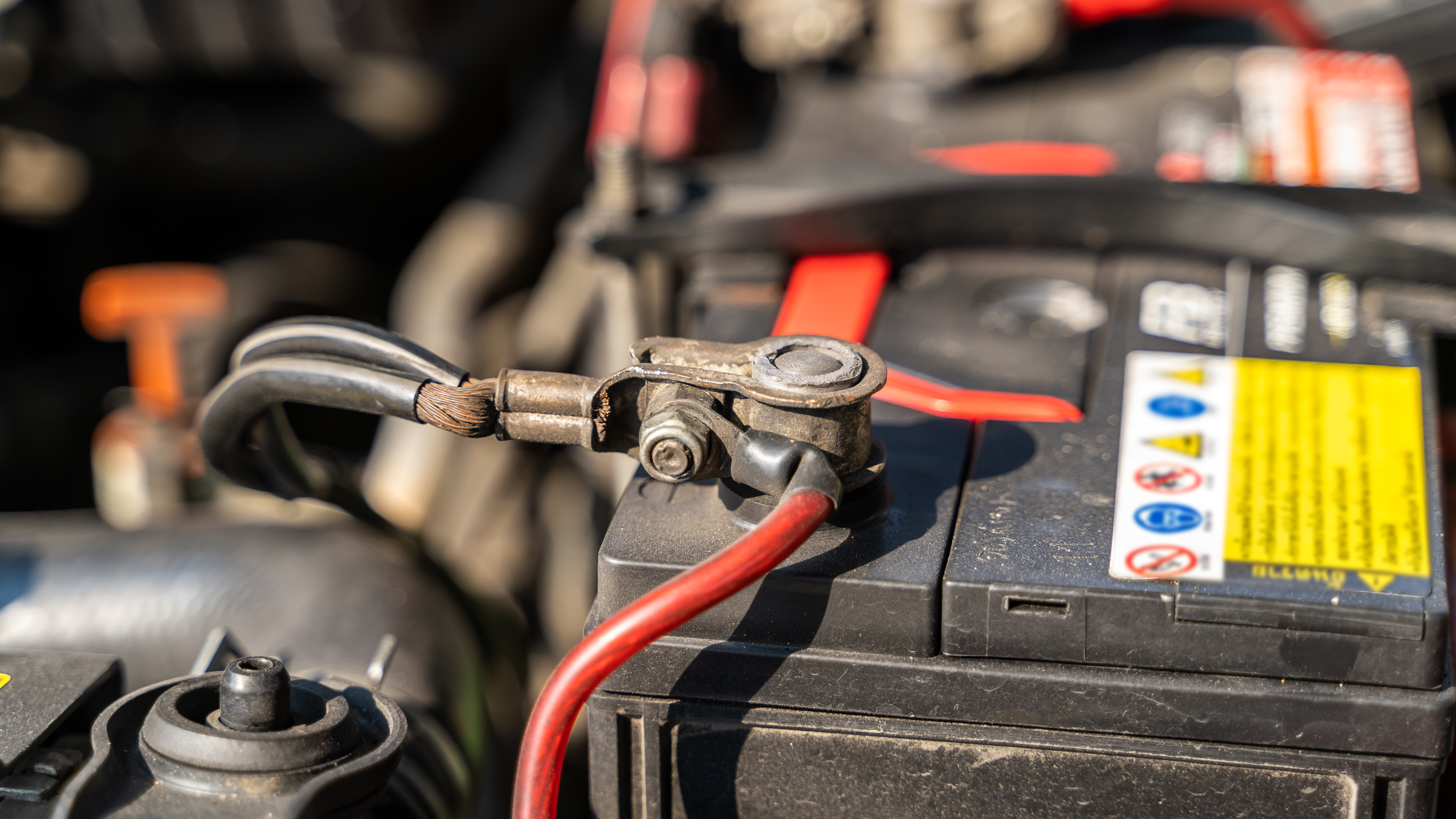 Nobody likes an unpleasant smell, especially in our enclosed cars. But why would your car smell like rotten eggs? Such a foul odor is difficult to stomach so, we’ve researched potential causes of rotten egg smell in your car so you can make the smell go away.
Nobody likes an unpleasant smell, especially in our enclosed cars. But why would your car smell like rotten eggs? Such a foul odor is difficult to stomach so, we’ve researched potential causes of rotten egg smell in your car so you can make the smell go away.
The smell of rotten eggs coming from your car is actually the scent of a vaporous byproduct called hydrogen sulfide being emitted from your exhaust system. This smell indicates that there might be a mechanical problem with your car.
If you notice an unpleasant smell coming from your car, you should have the car inspected by an automotive mechanic at your earliest convenience to diagnose and repair the issue. Keep reading and, we’ll explain the potential causes of a rotten egg smell and why you should repair the problem immediately.
What Causes Rotten Egg Smell In My Car?
Fuel contains hydrogen sulfide. During the combustion process, your car’s exhaust system usually converts toxic hydrogen sulfide into an odorless, harmless vapor called sulfur dioxide. But, if your car has a mechanical issue and the conversion is not properly completed during fuel combustion, even a small amount of hydrogen sulfide can cause a potent, sulfuric smell.
The lingering smell of rotten eggs or hydrogen sulfide emitted from your car indicates a mechanical issue and could be dangerous if not repaired. Potential mechanical issues that cause the emission of a sulfuric smell include:
Broken/Clogged Catalytic Converter
The catalytic converter, part of your car’s exhaust system, is the most likely suspect of a rotten egg smell in your car. It reduces harmful emissions by converting hazardous vapors into harmless vapors such as hydrogen sulfide converted to sulfur dioxide.
A broken or clogged catalytic converter does not properly convert combustion vapors, so unpleasant smells and hazardous exhaust byproducts can result. If diagnosed, you will need to replace the catalytic converter.
Learn about other warning signs of potential emissions problems, check out this guide: Evaporative Emission System (EVAP) Leak Detected: What to Do?
Broken Fuel Pressure Regulator
A broken fuel pressure regulator can send too much oil through the catalytic converter, causing a clog. The clogged catalytic converter will be unable to properly convert exhaust byproducts. Excessive buildup of exhaust byproducts can also occur in the clogged converter, so it could potentially overheat and catch fire.
If diagnosed, the fuel pressure regulator will need repair or replacement, and the catalytic converter will need replacement.
Old Transmission Fluid
Old transmission fluid contains contaminants and metal sediments that can damage your transmission over time. If not changed regularly, old fluid eventually seeps into other systems of your car and becomes stagnant. Stagnant transmission fluid can have a sulfuric or rotten egg-like odor. This occurs most commonly in cars with a manual transmission.
Manufacturers recommend changing the transmission fluid in manual cars every 30,000 to 60,000 miles. For automatic cars, the service recommendation of when to change transmission fluid varies, anytime between 30,000 to 100,000 miles depending on the manufacturer. Your owner’s manual can tell you how often to change the transmission fluid.
Is A Rotten Egg Smell From A Car Dangerous?
Driving a car that has a mechanical issue is dangerous because faulty components can potentially cause an accident or catch fire. So get your car inspected by an automotive mechanic as soon as possible if you suspect hydrogen sulfide emission.
Inhalation of hydrogen sulfide can also be detrimental to your health. But short-term exposure of extremely low concentrations emitted by your car is unlikely to cause any ill-effects.
According to the Occupational Safety and Health Administration (OSHA), the scent of hydrogen sulfide can be detected at a concentration of .01 to 1.5 ppm (parts per million). Health issues arise from prolonged exposure at as little as 2 ppm to 5 ppm and can include:
- Irritated or watery eyes
- Nausea
- Fatigue
- Headache
OSHA limits a person's exposure to hydrogen sulfide of up to 8-hours when a concentration of 10 ppm is present in the workplace. Consult your medical provider if you think you are experiencing symptoms of hydrogen sulfide exposure.
What Does A Bad Catalytic Converter Smell Like?
When a faulty catalytic converter cannot properly convert emissions byproducts, a burning, sulfuric smell or the odor of rotten eggs might result. You might also notice a foul smell from the catalytic converter if the engine is running on a rich fuel mixture with too little air to properly combust.
Why Does My Car Smell Like Sulfur When I Accelerate?
If you briefly smell a rotten egg scent from your car when accelerating, there is probably no cause for concern. The scent can result from the incomplete combustion of fuel. But if the smell lingers you should have the car inspected by an automotive mechanic. Lingering sulfuric or rotten egg scent can indicate a mechanical issue in your car’s exhaust system.
Why Does My Car Battery Smell Like Rotten Eggs?

If you detect the scent of rotten eggs lingering under the hood of your car, it could indicate a faulty or deteriorating battery.
Car batteries normally wear over time due to continuous charge/discharge cycles. A typical car battery’s lifespan is 5 years. You might notice an unpleasant smell being emitted from an aged or worn battery because the internal mixture of fluids is disrupted, causing vapors to be released. The smell of rotten eggs is actually vaporous hydrogen sulfide.
Damaged batteries that have suffered from freezing, overheating or an internal short can also emit vaporous, unpleasant smells. Other indicators of a faulty or deteriorating battery might include:
- Slowly cranking the engine or the need to jump-start the engine
- The battery light on your dash is illuminated
- Dimmed interior lights
- Electronics either function erratically or lose power
You should have the battery inspected by an automotive mechanic as soon as possible if you notice unpleasant smells or other indicators because the battery will likely need to be replaced. Lingering hydrogen sulfide can cause corrosion on your car's battery or other engine components. For more information, check out our post Car Battery Corrosion: What You Need to Know.
How Do I Get The Rotten Egg Smell Out of My Car?

As soon as the mechanical issue that is causing the rotten egg smell has been diagnosed and repaired, the unpleasant odor will go away. It’s that simple! Have your car inspected by an automotive mechanic as soon as you notice any unpleasant smells to keep your car functioning safely.
